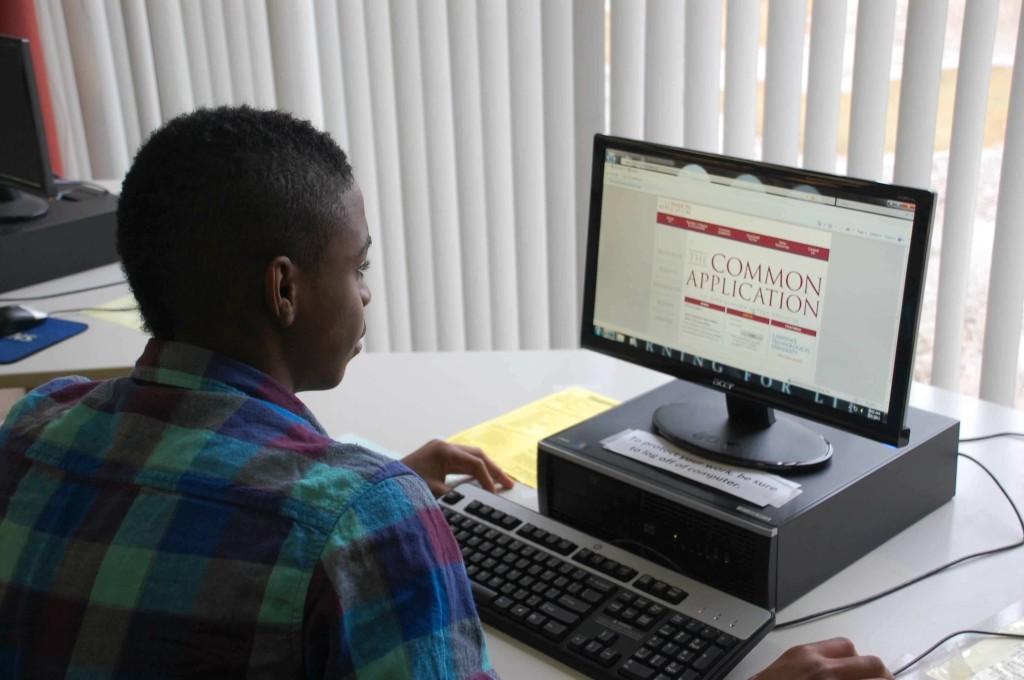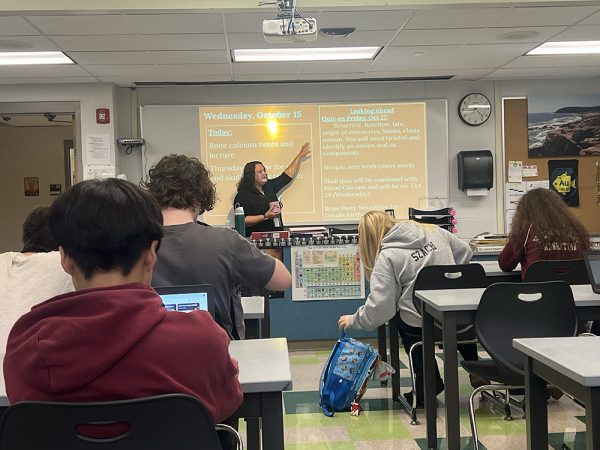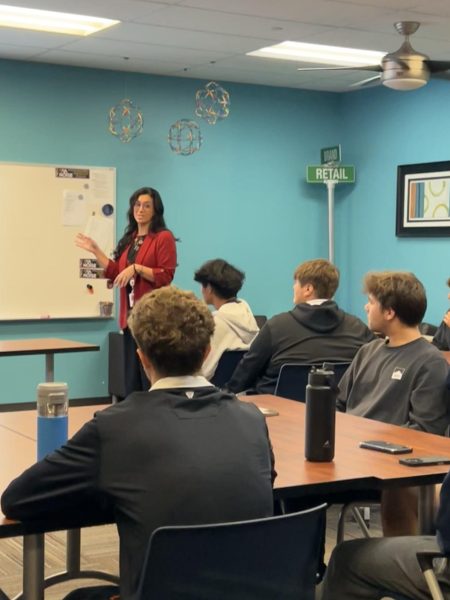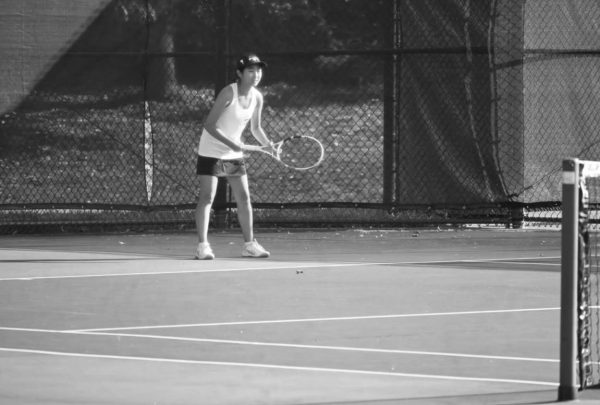Beachcomber Survey Reveals Stress of College Admissions Process
In a month, seniors will finally hear back from all the universities they applied to.
“The thought of just getting into college is very daunting,” said senior Josh Carno-Harf, who has gotten into several schools but is still waiting on others.
“[When someone has gotten into a school and you’re still waiting, it] makes you stressed out,” said senior Bijal Patel, who is in a similar situation. “It’s like, ‘Everyone’s found out but I have no idea where I’m going.’”
With one of the most intense pressures of senior year, college acceptance, coming to a crescendo, The Beachcomber surveyed BHS seniors about their perceptions and fears during the college admissions process. Furthermore, we sought to compare student beliefs with those of experts, speaking with the guidance counselors and consulting social science research.
Seniors report feeling that academics and character are the most important factors for getting into college. They feel at least some of the process is outside of their control. In general, the perceptions of BHS seniors are in agreement with expert opinion. Furthermore, those who feel the process is out of their control are more likely to describe it as unfair or to feel stress. These results paint a clearer picture of the attitudes that BHS seniors have as they embark on the culminating journey of their high school career.
What’s important for getting in?
“Pressure is put on you to perform with your grades and scores on standardized tests,” said Carno-Harf.
This pressure–reported by many students–is not unfounded. Guidance counselors and admissions data support the view that grades and test scores are critical.
The 96 seniors who took the survey were asked to rank the most important factors in college admissions from thirteen categories. GPA was ranked as most important. It was followed by standardized test scores and then the essay.
The guidance counselor’s responses generally matched student rankings. They divided the categories into tiers, drawing upon various college planning websites. On the first tier, they placed GPA, standardized test scores and the number of honors and AP classes that students take.
Some see the high premium colleges place on grades, test scores and course load as disconcerting.
“I would hate to be applying to college now,” said guidance counselor Marcia Alperin, speaking as spokeswoman for the BHS guidance department. “Everything is so difficult to get into.”
“I was worried about my scores and GPA,” said Patel. “They weren’t that bad; I was just worried that maybe they wouldn’t be enough.”
“Everyone has the opportunity still, but the opportunities for those who are not the top of the top are getting less every year,” Alperin added.
Research seems to back up the importance of test scores. A 2005 study at Princeton University led by Thomas Espenshade showed that those with combined SAT scores between 1500 and 1600 are 25 times more likely to be accepted to elite colleges than those with combined SAT scores below 1000.
The biggest discrepancy between students and guidance counselors’ views about the admissions process is that students seem to rank higher factors like the essay, extracurricular activities and letters of recommendation. These factors, along with percent in class, interviews, demonstrated interest in school and character, were categorized by the guidance counselors as “second-tier.”
“I think your extracurricular activities and school involvement is a big factor,” senior Shannon Finkenthal wrote on the survey. “Although your grades are a large factor as well, I think colleges almost consider your involvement and extracurricular activities [just] as much.”
“I heard they like a very well-rounded person, lots of community service and extracurricular stuff, not just school,” Carno-Harf said.
When asked what characteristics stood out most on their application, students most often said their academics or their service, leadership and club participation. They were next most likely to discuss their character and essay.
Both guidance counselors and students ranked less-controllable factors, like special talents, race/ethnicity, alumni relationship and other connections, and first generation college student status as least important.
“The most selective schools call it finding a community,” Alperin said. “If they need that crew person, that crew person might get in over someone who isn’t an athlete. And those are frustrating for us.”
Control, Fairness, and Stress
“Admissions seems to be rather arbitrary after you cross a certain ‘threshold,’” one survey respondent wrote.
“I think it kind of sucks that colleges choose diversity over the person’s character or intellect a lot of the time,” wrote another.
Clearly, there are some who call the fairness of the college admissions process into question. 25.6% of respondents felt the process was unfair, giving it a 1 or a 2 where 1 was not fair at all and 5 was very fair.
However, those who felt it was unfair were almost three times as likely to be stressed about the process. Moreover, students were asked if they felt there were certain parts of the college admissions process not within their control. Those who said they could not control the ultimate decision were more than twice as likely to feel the process was unfair.
Why does a lack of control relate to perceived unfairness? How could this be related to stress?
For some, there is often a perception that the system favors certain groups over others. Indeed, the second most common factor that students felt was out of their control was admissions preference for a certain group.
Patel sees a system that benefits the wealthy. “I think there’s a bias towards people with more money,” said Patel. “[In] private schools, a lot of those kids are getting into Ivy League schools. And a lot of those kids from Beachwood who are equivalent or even better, the kids are not getting in.”
Patel explained a possible cause of this “rich kid” advantage. “Some colleges put a lot of weight on the ACT and SAT and others don’t,” she said. “For the colleges that do, I don’t think it’s all that fair for the students who don’t have the advantage of getting a tutor and getting a lot of help.”
Patel feels this advantage particularly strongly, as her parents did not attend college and do not have experience with the process. “Some people are like, ‘I wish I was a first-generation college student.’” she said. “My parents don’t really know that much about the college process which…is hard. I don’t have their mistakes to [learn from].”
Others see a process that places too much stock on the historically disadvantaged. “I’m an over-represented minority in the college process,” wrote senior Gordon Hong.
“We have students [who] want to go for these highly selective colleges,” Alperin said. “But you can’t assume that’s the only thing you’re applying to.”
“No matter how fantastic you are, they’re looking for that community, they’re looking for that family and even though you fill that mold, you don’t get into any of them,” she added
However, while the guidance department expressed frustration with the system, Alperin, as their representative, was not disillusioned. “I think it’s kind of how it has to be because they have all these majors, they have all these requirements they have to meet for funding, so I think it’s as fair as it can possibly be,” she said.
And despite students’ worries, there are many things within a student’s direct control.
“Your essay, if they read it, that would be fair because that’s something you write about you,” Patel said. “Your extracurriculars, the things you decide to do [after school] are fair.”
“It’s only under your control to the extent that you perform at your ability,” Alperin said. “…that you take the most challenging classes that you can. That you do activities that you love and that you choose colleges that are appropriate for who you are and what you’ve done.”











